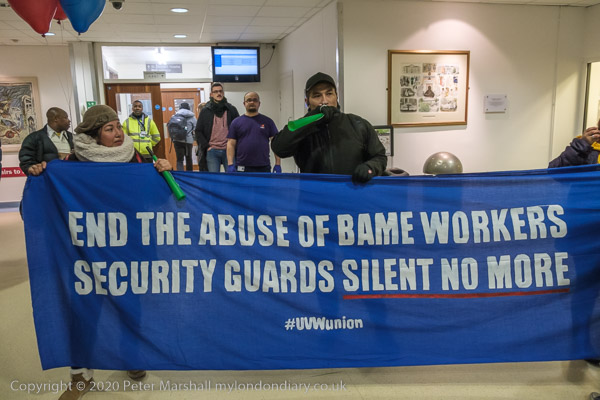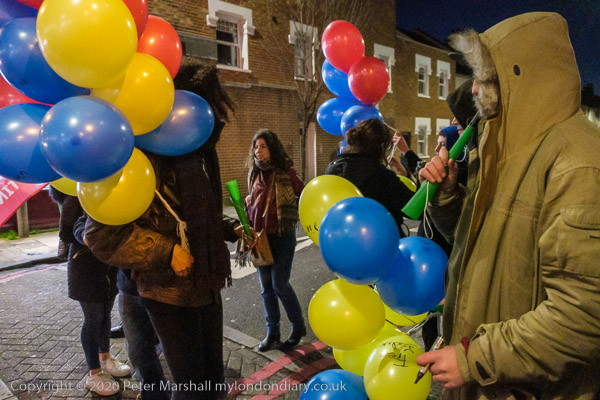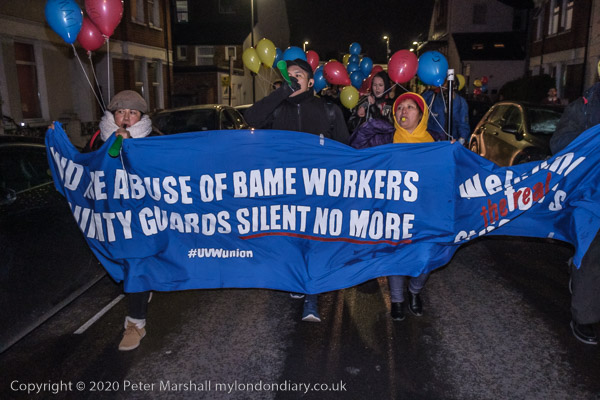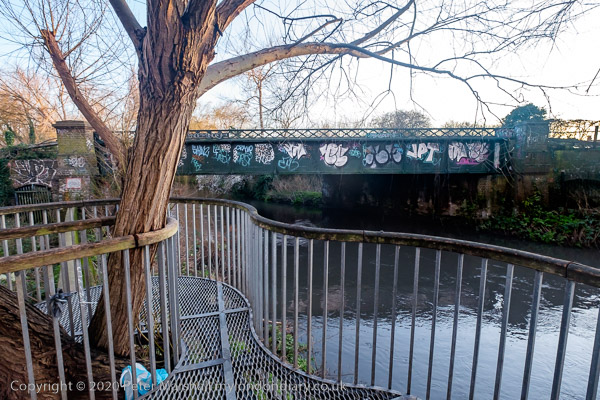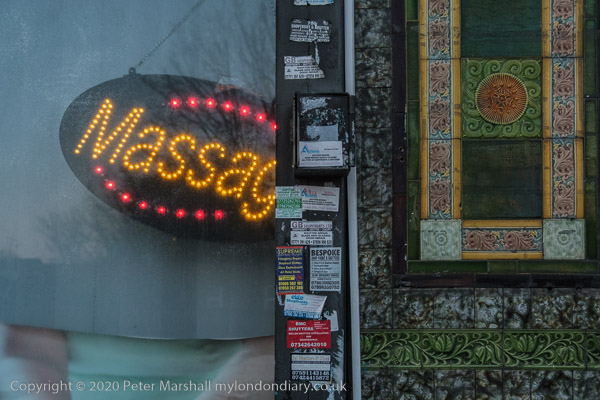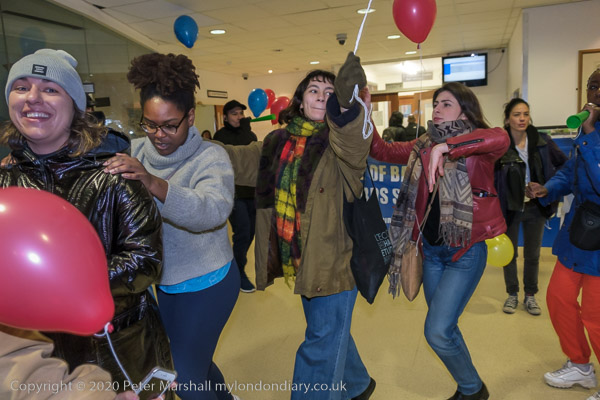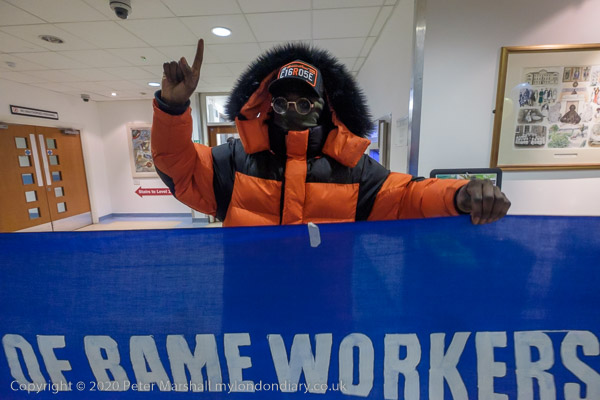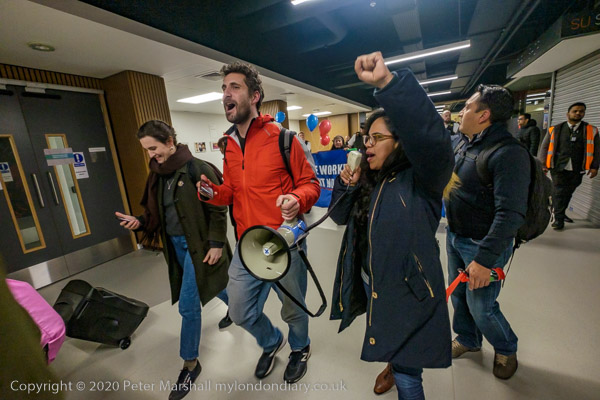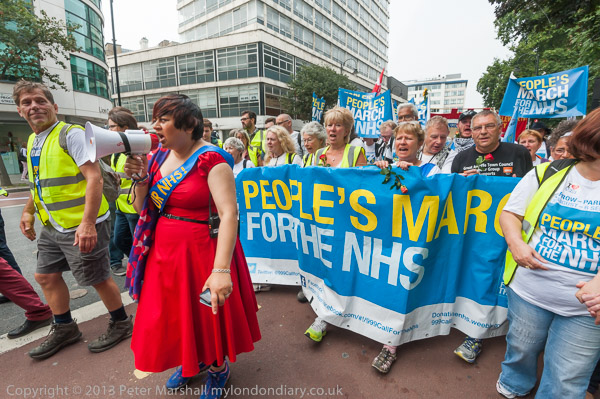
On Saturday 6th September I was in London mainly to cover the final stage of the People’s March for the NHS which had begun in mid August in Jarrow, but also photographed Mourning Mothers of Iran, people on a Rolling Picket against Israeli violence and a protest against children being taken for families by social workers and family courts.
People’s March from Jarrow for NHS
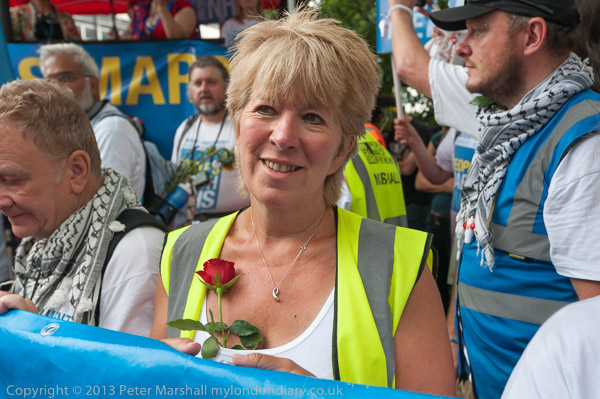
When the NHS was founded back in 1948 it was an integral part of the welfare state, a social welfare policy to provide free and universal benefits. It was opposed at its start by the Conservative Party, and met with opposition from some doctors and other medical professionals worried that it would cut their earnings from private practice.
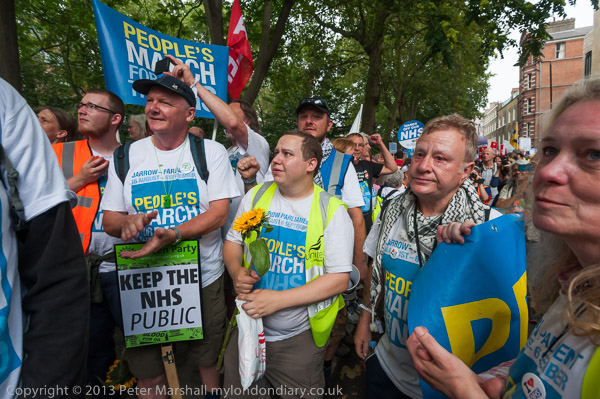
Particularly because of the opposition from doctors, the initial scheme had to be fairly drastically changed, with compromises being made by Minister for Health Aneurin Bevan. And dentistry was never really properly and fully brought withing the system.
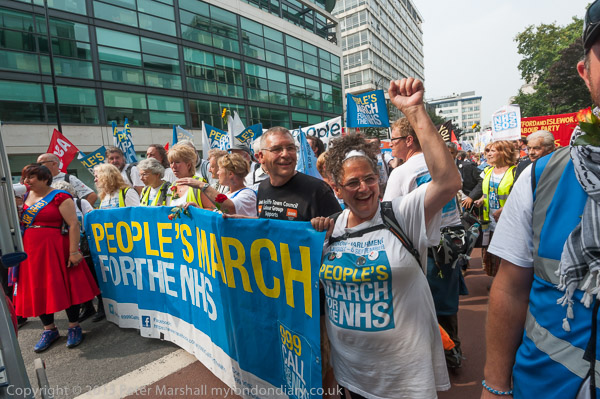
Since 1948 much has changed. We’ve seen a huge growth in private hospitals, partly driven by many employers providing private healthcare schemes as a perk for their better paid employees, but also by public funding being used to pay for NHS services provided by the private sector.
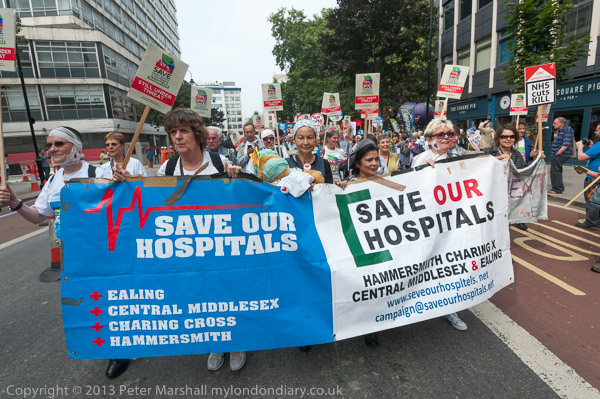
We’ve also seen the introduction of charges for NHS prescriptions and more recently the NHS has decided on a fairly wide range of common conditions for which it will no longer provide treatment or prescriptions, sending people to the chemist for both advice and over the counter medicines.
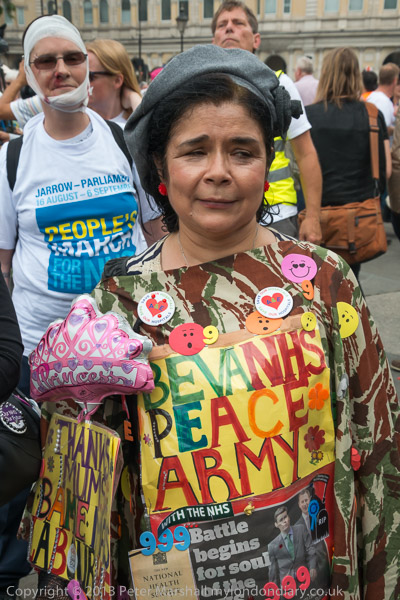
There have been huge advances in medical science too, and more of us are living to a greater age than ever before, making more demands on the NHS. Our NHS is costing more, though still the total spending on health in the UK is significantly less than in many other countries as an OECD chart on Wikipedia shows – less than Japan, Ireland, Australia, France, Canada, Belgium, Luxembourg, Denmark, Sweden, Austria, Netherlands, Germany, Norway and Switzerland – and well under half of that in the USA.
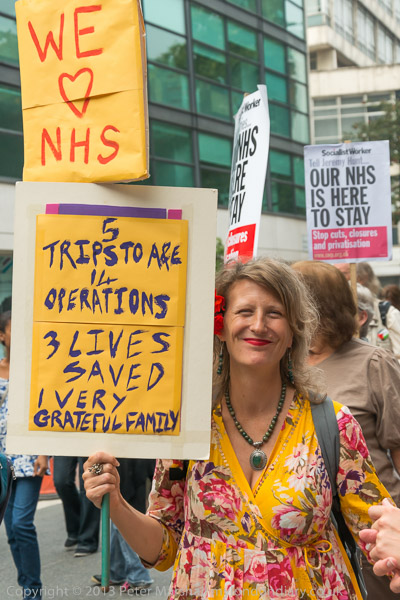
Yet for some years many leading Conservatives have advocated the UK moving to a system based on the US model. It would not make our health any better, but would make it much more expensive. And lead to huge profits for healthcare companies – many of them US-based – which are already beginning to take large bites of our own NHS spending. Involving private companies in providing NHS services has not generally led to better services – and in some cases has certainly made them worse, unsurprisingly as it diverts money to shareholders rather than using it for patients. Some services have become more difficult to access.
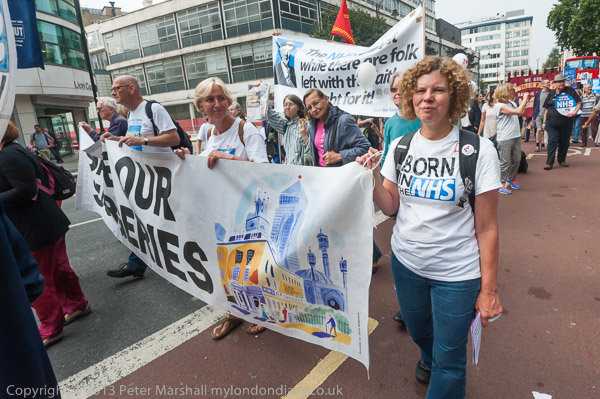
GP surgeries have always been private businesses, but when these were run by the doctors they provided more personal services than those run by some private companies where patients are unlikely to see a ‘family doctor’ and far more likely to see a locum – if they can still get an appointment. The NHS also spends over £6bn a year on agency and bank staff which would be unnecessary if we were training enough staff.
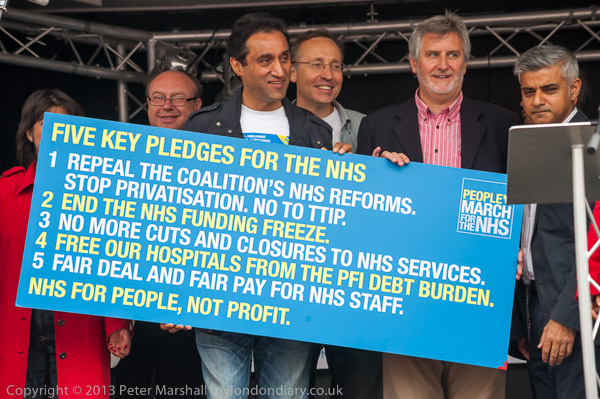
The need to put services out to tender is time-consuming and wastes NHS resources, one of several things which has produced a top-heavy management. And accepting low tenders often leads to poorly performing services such as cleaning, as I found when I was in my local hospital and found staff simply were not allowed time to do the job properly.
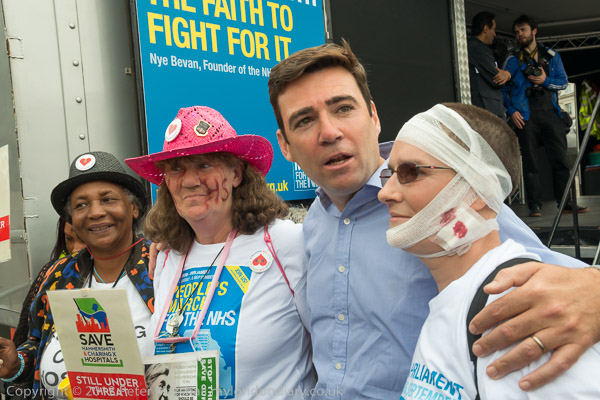
The Health and Social Care Act 2012 was the most extensive reorganisation of the NHS to that date and Lansley has been widely seen as getting things wrong, and it replaced the duty on the NHS to provide services with one to promote them, with delivery possibly by others, opening up the entire health service to privatisation.
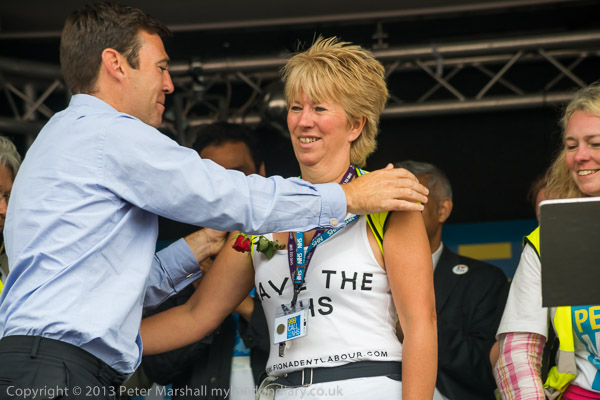
I walked with the marchers from a rally in Red Lion Square to Trafalgar Square where there was a final rally with speakers including Shadow Secretary of State for Health Andy Burnham and London Mayor Sadiq Kahn. In 1936 the Jarrow Crusade marchers in 1936 – who were shunned by the Labour Party but captured the hears of the British population – had been given a pound, along with a train ticket back to Jarrow, but failed to get any significant action from the government and Jarrow was left without jobs. Those marchers who had walked the whole 300 miles from Jarrow were presented with medals incorporating a pound coin.
People’s March from Jarrow for NHS
Mourning Mothers of Iran – Trafalgar Square
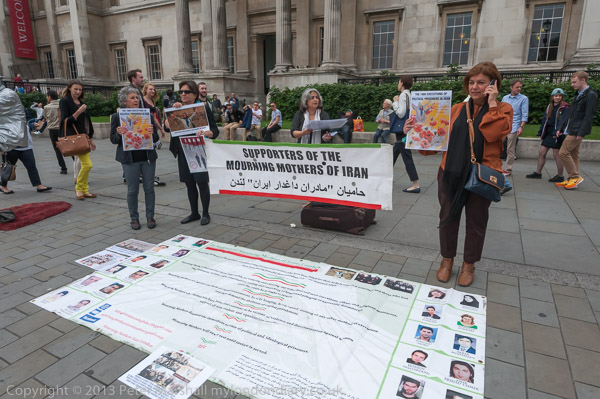
On the North Terrace of Trafalgar Square I found a group of mainly Iranian women standing in a silent vigil to support the Mourning Mothers of Iran.
Now renamed The Mothers of Laleh Park, these are women who hold vigils in the park in the centre of Tehran after their children were killed or imprisoned following a crackdown on members of the opposition after the 2009 Iranian election, and call for the release of political prisoners. Many of the women in Iran have been arrested for protesting and for talking to foreign journalists.
Rolling Picket against Israeli violence – Downing St
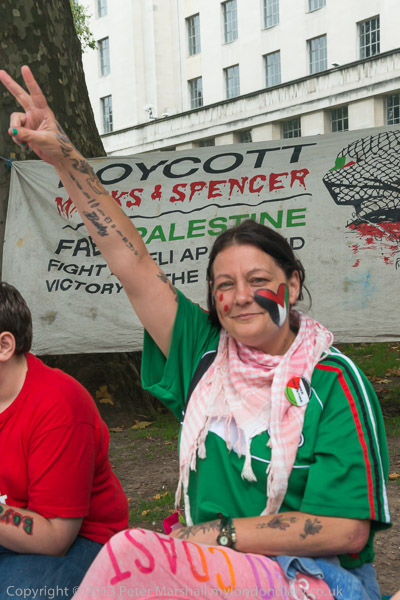
At Downing Street I photographed a group protesting against Israeli violence towards Palestinians and clalling for a boycott of Israeli good.
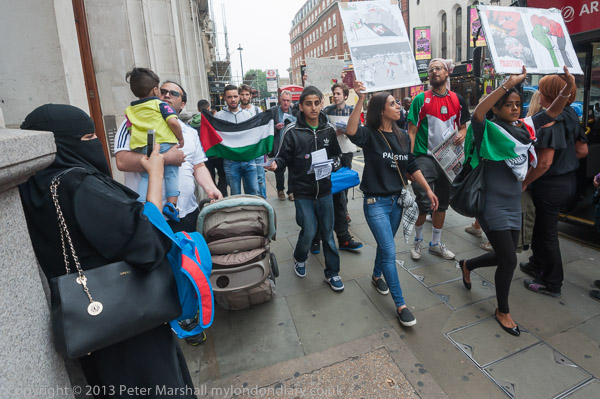
After a brief protest at Downing St they marched up Whitehall and protested outside McDonalds before going for another short protest outside the Tesco facing Trafalgar Square. Police intervened to move them away when they tried to block the doorway there. I left them on their way to make further protests outside shops supporting Israel on their way to Tony Blair’s house off the Edgware Rd.
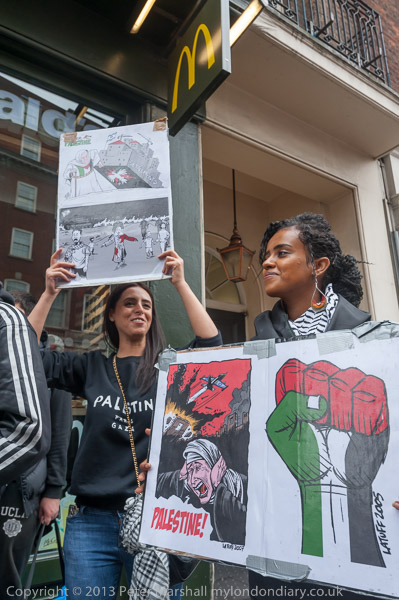
Rolling Picket against Israeli violence
Stolen Children of the UK – Parliament Square
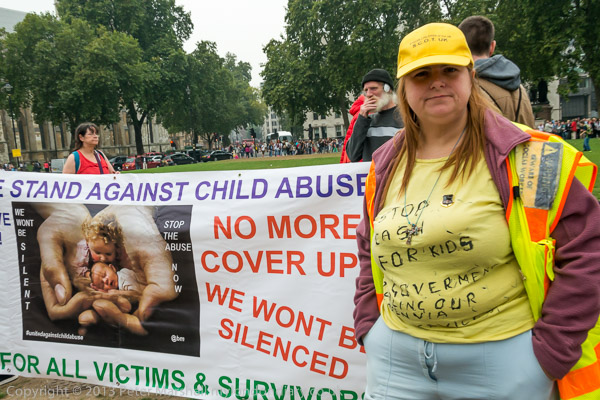
This group say that many children in the UK are removed from families by social workers and family courts for no good reason. They allege that there is systematic, systemic institutional abuse of around a thousand children a month being removed in this way and then abused by paedophile rings. Although there may be children wrongly taken from families there appears to be no firm evidence for such abuse.
These conspiracy theories are a world-wide phenomenon and in 2017 became the core belief of QAnon, the US extreme right wing conspiracy theory political movement.
